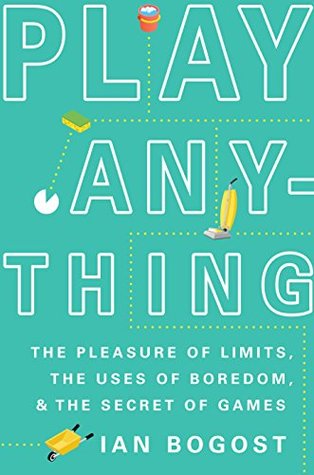More on this book
Kindle Notes & Highlights
The lesson that games can teach us is simple. Games aren’t appealing because they are fun, but because they are limited. Because they erect boundaries. Because we must accept their structures in order to play them.
Play isn’t doing what we want, but doing what we can with the materials we find along the way. And fun isn’t the experience of pleasure, but the outcome of tinkering with a small part of the world in a surprising way.
Boredom is the secret to releasing pleasure. Once something becomes so tedious that its purpose becomes secondary to its nature, then the real work can start.
Fun comes from the attention and care you bring to something that imposes arbitrary, often boring, even cruel limitations on what you—or anyone—can do with them. Worldly limitations impose a new and welcome humility, for they force us to treat things as they are rather than as we wish them to be.
Playgrounds aren’t things we create so much as structures we discover. They are peculiar configurations of materials that otherwise go unnoticed, unseen, unloved, and unappreciated. They’re scattered everywhere, stacked, overlapping, exerting their machinations without us, but available for our address and manipulation, if we draw a magic circle around their parts and render them real.
Living playfully isn’t about you, it turns out. It’s about everything else, and what you manage to do with it.
Jobs are fun when their work is meaningful, when their activities matter, and when the act of conducting them can be done over and over again with increased commitment.
Meaningful things contain something abhorrent, something revolting even though sublime. And every now and then, when you stare down their abhorrence, they will reward you.
Fun comes from the attention and care you bring to something, even stupid, seemingly boring activities. It’s a foolish attention, even. An infatuation. Feeling like you are having fun is a sign that you have given something respect and that its creators have respected you enough to trust that you might be able to respect it.
Instead of calling everything a game, we should think of everything as playable: capable of being manipulated in an interesting and appealing way within the confines of its constraints.
WE OBSESS SO much about our desires and dreams—on the ways things can produce satisfaction or alienation—that we seldom stop to look at the situation in reverse. Rather than asking whether our environment gratifies us, what if instead we asked whether we have yet explored the implications and capacities of the things with which we find ourselves surrounded?
There is a humility in limitation, for it requires us to treat things as they are rather than as we wish them to be. Such a shift is required if we hope to escape the tyranny of restraint in order to construct a life in which we take the world around us more seriously by paying greater attention to its contents. Instead of seeking greater happiness within ourselves, we should pursue a greater respect for the things, people, and situations around us, learning to take them for what they are rather than for what they lack. The best way to combat the anxiety of a world whose contents might
...more


